Key Takeaways
- Minnesota homebuying timelines typically span 30-60 days from pre-approval to closing, with preparation beginning months earlier
- Pre-approval strengthens your negotiating position and clarifies your budget before house hunting begins
- Market conditions in Twin Cities areas can accelerate competition but may extend search periods
- Professional inspections address Minnesota-specific issues like foundation settling and ice dam potential
- Underwriting and appraisal phases require 14-21 days and can extend timelines if issues arise
- Maintaining financial stability throughout the process prevents delays and protects loan approval
- Working with experienced local professionals helps anticipate and avoid common timeline obstacles
Complete Timeline of the Minnesota Homebuying Process
Buying a home in Minnesotainvolves multiple stages, each with specific requirements and timelines. From initial financial preparation to receiving your keys, the process typically spans 30 to 60 days from pre-approval to closing. However, preparation work can begin months earlier, and market conditions significantly impact timing.
Understanding each phase helps you stay organized, avoid delays, and make informed decisions throughout your homebuying journey.
How Long Does the Minnesota Homebuying Process Actually Take?
The complete homebuying timeline varies based on several factors. From pre-approvalto closing typically requires 30 to 60 days, but preparation work often begins 3 to 6 months earlier. In competitive markets like Minneapolis, St. Paul, Rochester, and Duluth, homes sell faster, potentially extending your search phase.
Market conditions play a crucial role in timing. During seller’s markets, multiple offer situations can speed up decisions but may complicate negotiations. Buyer’s markets often provide more time for deliberation and inspection periods.
Your financing type also affects the timeline. Conventional loans often close faster than FHA, VA, or USDA loans due to fewer requirements and inspections. Cash purchases can close in as little as two weeks, though most buyers require financing.
Pre-Purchase Preparation: The Foundation Phase (3-6 Months Before)
Financial Health Assessment
Before starting your home search, conduct a thorough financial review. Pull your credit reports from all three bureaus and address any errors or negative items. Credit scores above 740 typically qualify for the best mortgage rates, while scores above 620 open most loan programs.
Calculate your debt-to-income ratio by dividing monthly debt payments by gross monthly income. Most lenders prefer ratios below 43%, though some programs allow higher ratios with compensating factors like larger down payments or cash reserves.
Saving for Homeownership Costs
Minnesota homebuyersneed funds for multiple expenses beyond the purchase price. Down payment requirements vary by loan type, from 0% for VA and USDA loans to 20% for conventional loans without mortgage insurance.
Closing costs in Minnesota typically range from 2% to 5% of the purchase price. These include lender fees, title insurance, attorney fees, recording costs, and prepaid items like property taxes and homeowners insurance.
Additional costs include moving expenses, immediate repairs or improvements, and emergency reserves. Financial experts recommend maintaining 2 to 6 months of mortgage payments in savings after closing.
Loan Program Research
Minnesota offers numerous loan programs beyond conventional financing. The Minnesota Housing Finance Agency provides down payment assistance and favorable rates for first-time buyers and those purchasing in targeted areas.
FHA loans require just 3.5% down and accept credit scores as low as 580. VA loans offer 0% down payment options for eligible veterans and service members. USDA loans provide 0% down financing for properties in rural areas, which includes many Minnesota communities outside the Twin Cities metro.
Pre-Approval: Your Financial Green Light (3-5 Days)
Documentation Requirements
Lenders require extensive documentation to verify your financial capacity. Gather recent pay stubs, tax returns from the past two years, bank statements showing 2-3 months of activity, and documentation of any other income sources.
Self-employed borrowers need additional documentation, including profit and loss statements, business tax returns, and sometimes client contracts or invoices showing income stability.
Understanding Your Pre-Approval Letter
Your pre-approval letter specifies the maximum loan amount, estimated interest rate, and loan program. This document expires after 60 to 90 days, so timing your home search appropriately helps maintain its validity.
Pre-approval differs from pre-qualification. Pre-qualification provides estimates based on self-reported information, while pre-approval involves actual credit checks and document verification, making it more reliable for serious home shopping.
Home Search Phase: Finding Your Perfect Match (2 Weeks to 6 Months)
Market Research and Strategy
Minnesota’s diverse housing marketrequires targeted search strategies. Urban areas like Minneapolis and St. Paul offer condos, townhomes, and single-family homes with varying price points. Suburban communities provide larger lots and newer construction, while rural areas offer privacy and acreage.
Work with a local real estate agent who understands neighborhood trends, school districts, and future development plans. They can provide comparative market analyses and help you understand fair pricing in different areas.
Making Competitive Offers
In competitive markets, strong offers include full-price or above-asking proposals, minimal contingencies, and flexible closing dates. However, avoid waiving inspection contingencies, as Minnesota’s climate can create unique property issues like foundation problems from freeze-thaw cycles.
Consider offering escalation clauses that automatically increase your bid up to a specified maximum if competing offers emerge. This strategy helps you stay competitive without overpaying unnecessarily.
Under Contract: Due Diligence Phase (21-30 Days)
Home Inspection Process
Schedule your inspection within the first week after offer acceptance. Minnesota home inspections should address climate-specific issues like ice dam potential, foundation settling, and HVAC system efficiency in cold weather.
Professional inspectors examine structural elements, roofing, plumbing, electrical systems, heating and cooling, and built-in appliances. They also check for safety issues like carbon monoxide detector functionality and proper ventilation.
If significant issues arise, you can request repairs, negotiate price reductions, or cancel the contract if inspection contingencies apply. Most sellers prefer repair credits over completing work themselves, giving buyers control over contractor selection.
Appraisal Requirements
Your lender orders an appraisal to confirm the home’s market value supports the loan amount. Minnesota appraisers consider recent comparable sales, property condition, and local market trends.
Appraisals typically take 7 to 14 days to complete. If the appraised value falls below the purchase price, you can renegotiate with the seller, increase your down payment to cover the difference, or potentially cancel the contract.
Title Search and Insurance
Title companies research property ownership history to identify liens, easements, or ownership disputes. Minnesota requires title insurance to protect lenders and buyers from title defects discovered after closing.
Common title issues include unpaid taxes, contractor liens, or boundary disputes. Most problems can be resolved before closing, though complex issues may require additional time.

Loan Processing and Underwriting (14-21 Days)
Documentation Verification
Loan processors verify all submitted information and request additional documentation as needed. They confirm employment, verify bank account balances, and ensure debt information remains accurate.
Avoid making major purchases, changing jobs, or opening new credit accounts during this phase. Such changes can delay closing or potentially derail loan approval.
Final Underwriting Review
Underwriters perform the final loan approval, reviewing your complete financial picture and property details. They may request additional documentation or explanations for unusual deposits or credit inquiries.
Conditional approval letters outline any remaining requirements before final approval. Common conditions include updated pay stubs, proof of insurance, or clarification of specific financial items.
Pre-Closing Preparations (3-7 Days Before)
Final Walk-Through
Schedule your final walk-through 24 to 48 hours before closing. Verify that agreed-upon repairs are complete, all systems function properly, and the property condition matches your expectations from the inspection period.
Check that sellers have removed their belongings and left behind items specified in the purchase agreement, such as appliances or fixtures.
Closing Disclosure Review
Federal law requires lenders to provide the Closing Disclosure at least three business days before closing. This document details loan terms, interest rate, monthly payment, and itemized closing costs.
Review the disclosure carefully and compare it to your initial loan estimate. Contact your lender immediately if you notice significant discrepancies or unexpected fees.
Final Preparations
Arrange homeowners insurance with coverage effective on your closing date. Obtain certified funds for closing costs and down payment, as personal checks typically aren’t accepted for large amounts.
Coordinate utility transfers and moving arrangements. Many utilities require advance notice to establish service in your name.
Closing Day: Finalizing Your Purchase (1-2 Hours)
Document Signing Process
Minnesota closings typically occur at title companies or attorney offices. You’ll sign numerous documents, including the mortgage note, deed of trust, and various disclosure forms.
Your attorney or closing agent explains each document’s purpose and answers questions about the transaction. Take time to review important documents rather than rushing through signatures.
Final Steps and Key Transfer
After signing all documents and providing closing funds, the deed transfers to your name. Recording the deed at the county office makes the transfer official and public record.
You’ll receive keys, garage door openers, and other access items along with important documents like your deed, loan papers, and property information.
Common Timeline Delays and Prevention Strategies
Documentation Issues
Missing or incomplete financial documentation causes frequent delays. Respond promptly to lender requests and maintain organized files throughout the process.
Appraisal Challenges
Low appraisals or unique property features can extend the timeline. Consider ordering the appraisal early in the process when possible.
Title Complications
Complex title issues require additional research and resolution time. Purchase properties with clear titles when possible, and address title questions early.
Employment or Credit Changes
Job changes, new debt, or credit inquiries during the loan process can cause delays or loan denials. Maintain financial stability throughout the homebuying process.
Weather-Related Delays
Minnesota winters can impact inspections, appraisals, and moving schedules. Plan accordingly during harsh weather months and build buffer time into your timeline.
Start Your Minnesota Homebuying Journey with Expert Guidance
The Minnesota homebuying process becomes manageable with proper planning and professional support. Understanding each phase helps you make informed decisions and avoid costly delays that can derail your purchase.
At Refined Lending, we guide Minnesota buyers through every step of the homebuying timeline. Our mortgage experts help you secure pre-approval, understand loan options, and coordinate with your real estate team to ensure smooth transactions from application to closing.
Ready to begin your homebuying journey? Contact Refined Lending todayand discover how we make the Minnesota homebuying process clear, efficient, and successful for buyers throughout the state.


